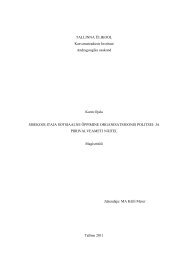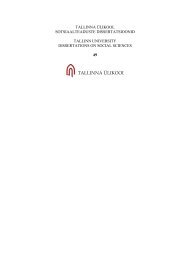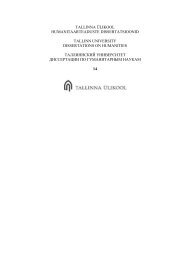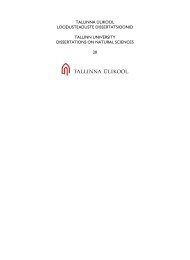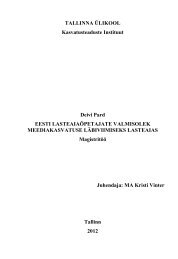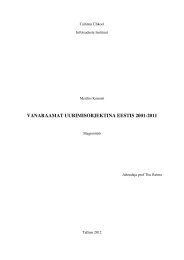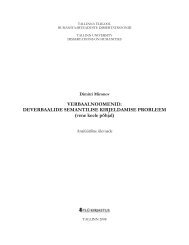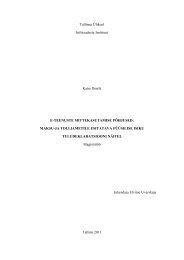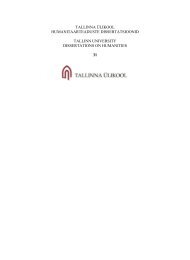Download (1157Kb) - E-Ait
Download (1157Kb) - E-Ait
Download (1157Kb) - E-Ait
You also want an ePaper? Increase the reach of your titles
YUMPU automatically turns print PDFs into web optimized ePapers that Google loves.
4.3.2. Structural capital perspective.<br />
No matter how willing staff are to share, if there is no infrastructure to facilitate the sharing,<br />
it will be difficult for sharing to happen. This section discuss the issue of structural capital<br />
and proposes how such things as organisational culture, structure, technological infrastructure<br />
and knowledge sharing strategy can help facilitate knowledge sharing. While the previous<br />
section discussed the opportunities, incentives, training, and other aspects pertaining to<br />
enhancing employees ability to participate in knowledge sharing, this section discusses how<br />
we support those who are enhanced and ready to share their knowledge to add value to an<br />
organisation.<br />
4.3.2.1. Organisation culture<br />
Culture has been one of the most well known obstacles to knowledge sharing. The minimal scale<br />
of knowledge sharing revealed by the data collected suggests one of the two things. It either<br />
suggests the absence of a sharing culture or the failure of existing sharing culture. Whether the<br />
answer is A or B, the message is very clear that Tanzania University public Libraries need to<br />
overhaul their organisation culture to support knowledge sharing practices. Trying to promote<br />
knowledge sharing within the same organisation culture may lead to devastating consequences<br />
including waste of time and resources and likely the same efforts in the future even with a right<br />
strategy may receive a negative reception.<br />
Most major change efforts in the past have failed due to ignorance of the importance of<br />
cultural change, see more in 2.4.2.1. This is not exceptional with libraries not either with<br />
knowledge sharing, the demand to rethink our culture to accommodate knowledge sharing<br />
initiatives is important. The burgeoning of knowledge sharing in Tanzania University<br />
libraries relies on cultural changes. The new culture should advocate creating and<br />
maintaining an environment whereby employees are willing and able to collaborate easily. A<br />
cooperative culture should be fostered to allow problems to be solved collaboratively. That<br />
way staff get the opportunity to learn from each other and contribute, and raise the trust level.<br />
Even though responses suggested that 17 of 21 respondents (81%) agreed that staff are<br />
encouraged to share, only 57% (12 of 21) of respondents believed that staff are willing to<br />
share. This suggests that even though sharing is encouraged, the motivation to share needs<br />
more emphasis to achieve better results. The organisation of libraries also needs to be looked<br />
56





